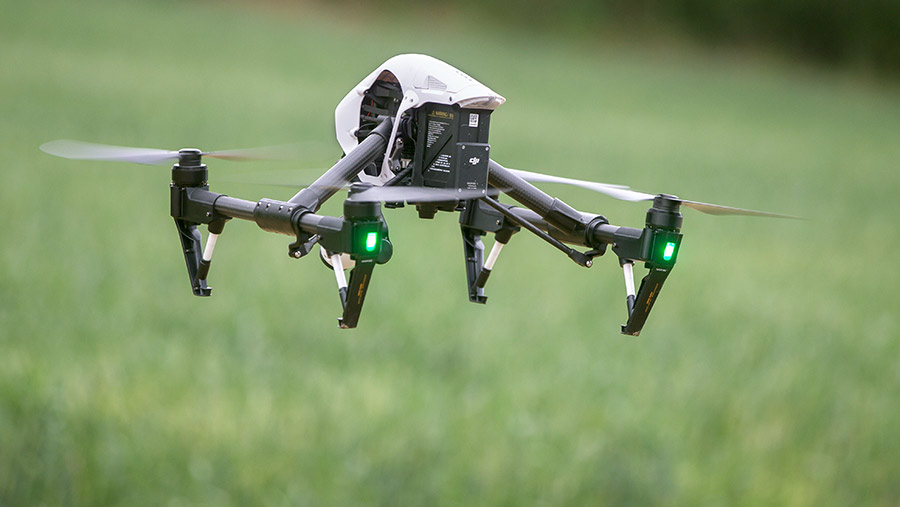NFU19: What will farming look like in 2040?
 © Tim Scrivener
© Tim Scrivener Brexit may be dominating the political agenda, but farmers also need to consider the longer term and start preparing for what will be a very different operating environment.
That is the central premise of a new report from the NFU – The Future of Food 2040 – launched at this week’s annual conference in Birmingham.
See also: How farmers will be affected by new drone rules
“This report is a catalyst to encourage us all to start the debate about our food and our future, so we can start to plan ahead,” says report author and head of policy services Andrea Graham.
“It is also a reminder for government to put domestic food production as a strategic priority in all policy-making.
“This includes a future domestic agricultural policy, which must enable farm businesses to take advantage of the many opportunities that will present themselves over the coming years.”
In particular, the report points to the rapidly growing population, water scarcity, climate change, urbanisation, technological advance and political tension, which will all have an impact.
To help farmers understand the direction of travel, the report addresses four key themes:
1 What we’ll be eating
Significant shifts in eating habits will have a profound effect on farm businesses.
While “fad diets” come and go, the report predicts a continued shift to more processed ready meals and convenience food.
It suggests food will be increasingly bought online, and there may also be a shift towards “subscription buying”, with consumers ordering their food direct from manufacturers.
“This will further challenge the big retail brands and offer potential for those farm businesses able to take advantage.”
The report suggests people will still want to eat meat in future, but less of it as “flexitarian diets” (with meat seen as an occasional treat) gain favour.
Beyond the UK, however, global meat consumption is set to double due to rising incomes and urbanisation, representing an opportunity for exporters.
Lab-grown meat and insect protein may also grow in popularity, so long as they become more palatable and affordable.
2 How we’ll be producing it
The report encourages British farmers to be “early adopters” of new tools and practices, to become more productive.
Examples include the use of smaller driverless tractors, which will reduce the need for tramlines and soil compaction. Night vision will enable these machines to work 24/7.
“There is also huge, untapped potential for the use of drones for sensing and mapping,” says the report.
Solar-powered drones, capable of staying airborne for days, could monitor crops in real time, helping to detect the onset of disease and stress.
For livestock farmers, intelligent ear tags with built-in sensors will provide earlier warnings of potential health issues, as well as real-time monitoring of weight and fertility.
The report also predicts the growth of “vertical farming”, especially for horticulture, while gene editing will be commonplace in 20 years’ time, creating enhanced immune systems and disease resistance.
Further restrictions on chemical use will drive the wider uptake of biological control agents, while robots are already in development for crop monitoring, weeding, planting and harvesting.
3 What it means for British farming
Developments in consumer demand and the advance of new technology suggest an acceleration in the pace of change over the next 20 years.
To succeed, the NFU says farmers will need to get away from the “price on the day” mentality, and become much more “digitally literate”, while showing greater business acumen.
They will need to understand financial risk management and become more integrated in the food chain.
Without direct payments, land markets may become more fluid and farmers will need to embrace alternative arrangements, such as share farming, contract farming and collaboration. The report also predicts more consolidation and corporate ownership of land.
Smaller farms may have to seek out more niche markets “for quality and local produce where provenance commands a premium”.
The report sees increasing opportunities for women, as heavy manual jobs disappear, but overall, farmworker numbers will decline, which might exacerbate issues of isolation and mental illness.
4 Opportunities for new markets
As well as adapting the way they farm, farmers should be looking to new markets over the next 20 years.
The provision of renewable energy and services to reduce carbon emissions (such as hosting battery storage to manage the electricity network) may provide an income. The report also foresees “a new era of diversification”.
Conservation may also become a “crop” for farmers, with taxpayer funding for things like tree planting, flood mitigation and landscape management.
5 What’s needed from government?
The report concludes with a series of “asks” for the government that the NFU believes are needed to enable farming to grab the opportunities.
These include a sufficient transition period to exit the CAP, and new policies to help farmers improve their productivity, cope with volatility and care for the environment.
